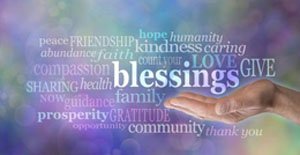The Seven Roles As Energy
By SHEPHERD HOODWIN
Often people identify with many of the soul types. Our role is our dominant energy, but we have all the others in us as well, at least potentially.
Each role energy has a particular “flavor.” Sometimes it’s obvious in a person; sometimes it’s not. Sages, for instance, have a certain tone that could be described as brassy, although its “volume” can be anywhere from quiet to loud. Other energies, such as essence twin role, casting, overleaves, body type, life task, and imprinting, can either emphasize or de-emphasize the energy of the role.
For example, a warrior in caution mode or a server with the attitude of cynic, can be like an actor cast against type, especially when in the negative poles. The usual warrior strength can be muted by caution, especially its negative pole, phobia (negative pole of caution). (In the positive pole, the warrior is simply (positive pole of caution) deliberate.) Cynicism can put an edge on the normally nurturing server.
In addition, sometimes a person is afraid to manifest his true nature because of past experiences. A sage, for example, may be afraid of speaking up, even though the sage role is largely “about” communication, because doing so got him in trouble before; in such a case, the fear will tend to be a big issue, because a dominant part of his nature is blocked. Likewise, a king or warrior (or anyone else) might be afraid of using his power because of having misused it in the past.
When a person has had a lot of imprinting contrary to his role, sometimes his role isn’t very evident simply because he’s young and hasn’t yet had time to assert who he is. Two teenage girls once came together to see me, and one of them was a king, which she found hard to believe, although her friend could validate it. I imagine that she looks more kingly now. If someone completes his midlife monad (usually in his mid-thirties), he generally throws off any remaining contrary imprinting that he no longer needs (if he ever needed it), fully revealing or “manifesting” his true essence. If someone doesn’t complete it, he can remain stuck in his imprinting for the rest of his life (unfortunately, this is common).
In addition to past experiences and imprinting, we also all have a false ego that can obscure our true nature to some extent. Servers and priests, for instance, are the primary care-givers, and in their positive poles, they tend to be particularly warm and nurturing. However, in their negative poles, even they can occasionally be cold and self-centered, although their role will likely be evident in other ways. I once channeled a friend’s mother as an old server; he had been certain that she was a young warrior (he had some negative judgments about both warriors and young souls). Michael explained that due to traumatic past-life experiences, she was a deeply wounded soul full of anger, and that that was masking her true essence.
It is also true that priests and servers sometimes need to be less involved with caring for others in order to balance their tendency to feel overly responsible for them; otherwise, they may not learn how to nurture themselves. In addition, because their vision of the higher good is so important to them, priests in their negative pole can tend to lay a lot of guilt and “should”s on themselves and others, leading to a quality of severity and heavy-handedness not unlike that of negative-pole warriors. Priests’ positive pole, compassion (positive pole of priest)is the antidote to this.
I am a sage, and I also have a sage essence twin and a sage cadence position, yet sometimes people are surprised that I’m a sage, or at least assume that my essence twin influence must be something other than sage. In fact, when I visited part of the Michael community in northern California, various people guessed my role or essence twin role to be scholar, priest, server, and artisan, in addition to sage. Those who guessed scholar were probably seeing my serious, analytical side—I am intellectually centered, which makes me look a little like the scholar stereotype. (I am also in a number four, or scholar-position, cadence.) I have a life task that is both expressive and inspirational, and my spiritual values are reflected in my writing, which may look somewhat priest-like. My goal of acceptance and my essence’s altruistic bent give me a “nice guy” quality that may suggest to some the role of server. My songwriting and other creativity suggest both artisan and sage energy. Some people even think I’m a quiet person—not the sage stereotype—but I do talk a lot to people I’m close to, and have many people in my life who are important to me, which is typical for sages, the most social of roles. I also love to sing, act, lead groups, counsel, “network,” write, and many other things that are common for sages. (When I was five, I wanted a typewriter for my Hanukah present, and was bitterly disappointed when I got a toy typewriter.) I have a sage’s sense of humor, although it does not always come out. (Humor can be a tonic for me, but I try to avoid the sage trap of being “on” all the time, “performing” my life rather than being genuine.) More importantly, expression (positive pole of sage), the name of both the sage’s axis and positive pole, is what most deeply characterizes me. People who really know me and who are also familiar enough with the flavor of sages would probably know that I’m a sage.
There are many different kinds of intelligence, but one of the characteristics we frequently ascribe to intelligence is the ability to retain and manipulate large amounts of information. This is a scholar specialty; they tend to have “steel trap” minds, since it is in the nature of scholars to gather, organize, and store knowledge (positive pole of scholar). They also tend to spend many lifetimes cultivating their intellect and often choose intellectual center, so we generally think of them as being highly intelligent. However, I know a moving-centered scholar who is mentally retarded. Obviously, he is not highly intelligent in this lifetime, even if he has been in many past lives. However, there is more subtle evidence of his scholar energy. For example, he has an encyclopedic memory for football statistics—he accumulates stacks of newspapers, refusing to throw them away until he has pored over the sports sections. He also remembers minutiae from the past. If the part of his brain responsible for such memory were also damaged, he would not even manifest these traits; you would have to look harder for evidence that he’s a scholar, but if you’re sensitive to what scholar energy feels like, you would probably still be able to validate him as a scholar. (Incidentally, it is often scholars and servers who incarnate into “differently abled” bodies; scholars, out of curiosity, and servers, to serve. However, most of us will have at least one lifetime in such a body.)
(excerpt from The Journey of Your Soul)
Related Articles:
Celebrity Roles
Further Reading in Our "Soul Types Series"
Soul Types: Server, Artisan, Warrior, Scholar, Sage, Priest, King,
Soul Types Test, Relationships and Soul Types, Roles as Energy, How Soul Types Appear Physically and Energetically, Inputs, Soul Types (or Role) Photos: Server Photos, Artisan Photos, Warrior Photos, Scholar Photos, Sage Photos, Priest Photos, King Photos
About Shepherd Hoodwin
Shepherd has been channeling since 1986. He also does intuitive readings, mediumship, past-life regression, healing, counseling, and channeling coaching, where he teaches others to channel. He has conducted workshops on the Michael teachings throughout the United States. His other books include Enlightenment for Nitwits, Loving from Your Soul: Creating Powerful Relationships, Meditations for Self-Discovery, Opening to Healing, Growing Through Joy, Being in the World, and more to come.
Visit his website at ShepherdHoodwin.com
Did You Enjoy This Article? Share It With Your Friends

Shop at the
New Age Store
Comments
RELATED ARTICLES


The Old Soul
By PHIL WITTMEYERLearn about the Overleaves, personality traits that shape our individual experience during each lifetime.
READ MORE